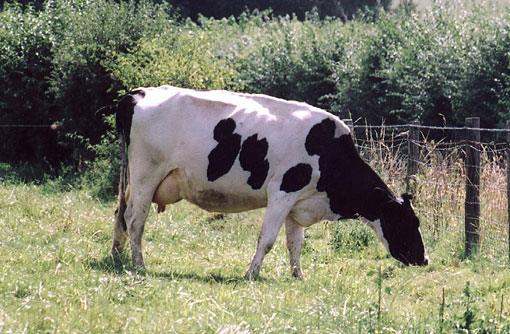Environmental schemes offer financial benefit

Environmental stewardship schemes may seem like an added task for many dairy farmers, but that mindset could be costing them thousands of pounds a year.
Only 4,962 dairy holding in England last year were in an Entry Level Stewardship (ELS) scheme, but with the potential to make more than £10,000 a year by joining a scheme, it’s surprising more are not reaping the benefit.
Dairy farmer Robert Kynaston has been involved in environmental stewardship for 15 years, and is currently involved in a Higher Level Stewardship (HLS) scheme at the 240 acre dairy farm he tenants in Shrewsbury.
He says agri-environment schemes offer real financial benefits – in his case £16,000 annually, or the equivalent of two months’ milk payments – as well as the chance to show the public how farming can help protect the environment and biodiversity.
“There’s a lot more that arable farmers can do with agri-environment schemes, obviously, but it does not preclude dairy farmers and there are options available for them to take up. The money comes out of single farm payments for pillar two, so this is a way to get that money back,” he adds.
“The key to success is trying to make it work with what you already do. I have tried to pick options that fit in with how I’m farming anyway. There are extra bits of work, but so long as I can make them fit within other farm work, its OK.”
As part of his HLS scheme, Mr Kynaston has taken the following measures to improve biodiversity on farm: trimming internal hedges in three-year rotations; creating 6m buffer margins; planting nectar- and pollen-rich grassland areas; and using of over-wintered stubbles as a low-input spring cereal for silage.
“I really enjoy it – it has given me another interest. Rather than just thinking about production, I think about wildlife and I think it’s important to show the public what we are doing for wildlife as well as for food production,” he adds.
“I would definitely recommend it. It can enhance and simplify some of things you do on fields. I have taken out difficult field corners – my father used to say that cows can graze on them, but we are getting paid money to let it grow wild, and it saves on farm work and makes life simpler.”
Derrick Davies of Folly Farms, Reading, has been involved in an ELS scheme for the past eight years, having originally been used as a pilot farmer for the scheme.
He says: “With the agricultural climate at the moment, there is money out there, but you have to be seen to be doing something to get it. With this, although there is an initial cost to set it all up, the payback is much greater so it really is a no-brainer.”
For those considering whether or not to sign up to an ELS or HLS scheme, Mr Davies recommends the use of a land agent for advice on whether or not an agri-environment scheme will work within your business.
“I’d highly recommend anybody interested in taking part to get some advice from a good land agent to see what it entails,” he adds.
“You don’t get anything for nothing. Yes, there are input costs at the beginning, but it’s very easy to manage and it’s extra money in the bank.”
What is Environmental Stewardship?
Environmental Stewardship (ES) is a government initiative offering financial rewards for “good stewardship” of the land. The scheme is administered by Natural England and open to all to farmers, tenants and land owners in England.
Four separate schemes are available within ES:
1. Entry Level Stewardship (ELS) – basic five-year scheme offering simple environmental management solutions across the whole farm.
2. Uplands Entry Level Stewardship (UELS) – five-year scheme designed specifically for England’s “Severely Disadvantaged Areas”.
3. Organic Entry Level Stewardship (OELS) – five-year scheme offering environmental solutions specific to organic and organic/conventional mixed systems.
4. Higher Level Stewardship (HLS) – 10-year, custom-made environmental management scheme, featuring more complex solutions designed to achieve environmental benefits over a longer period of time.
RABDF Environmental Management Event
The Royal Association of British Dairy Farmers (RABDF) is holding a “Farming and the Environment” training day and technical discussion, highlighting the benefits of ELS and HLS schemes and what farmers need to do to qualify. The event will include guided walks and discussions on other environmental topics including wildlife management, soil erosion, biomass and digestate, and farm plastic recycling.
When: Thursday 9 June
Where: The Allerton Project, Loddington, Leicestershire, LE7 9XE
Tickets: Pre-registration for the event can be done by calling the RABDF on 0845 458 2711 or by emailing trisworrall@rabdf.co.uk
